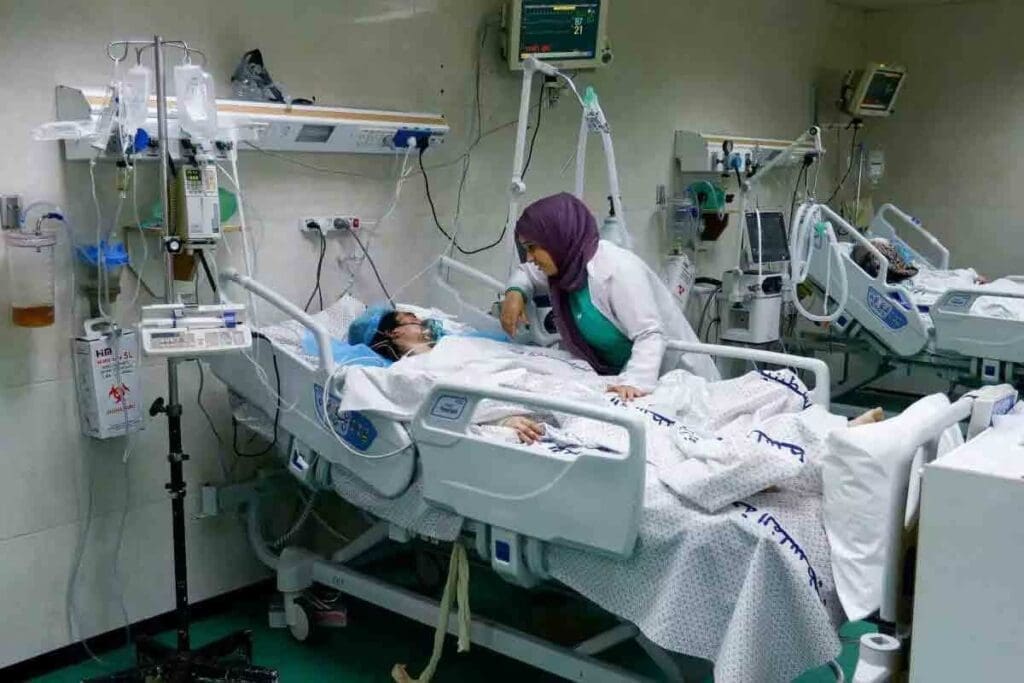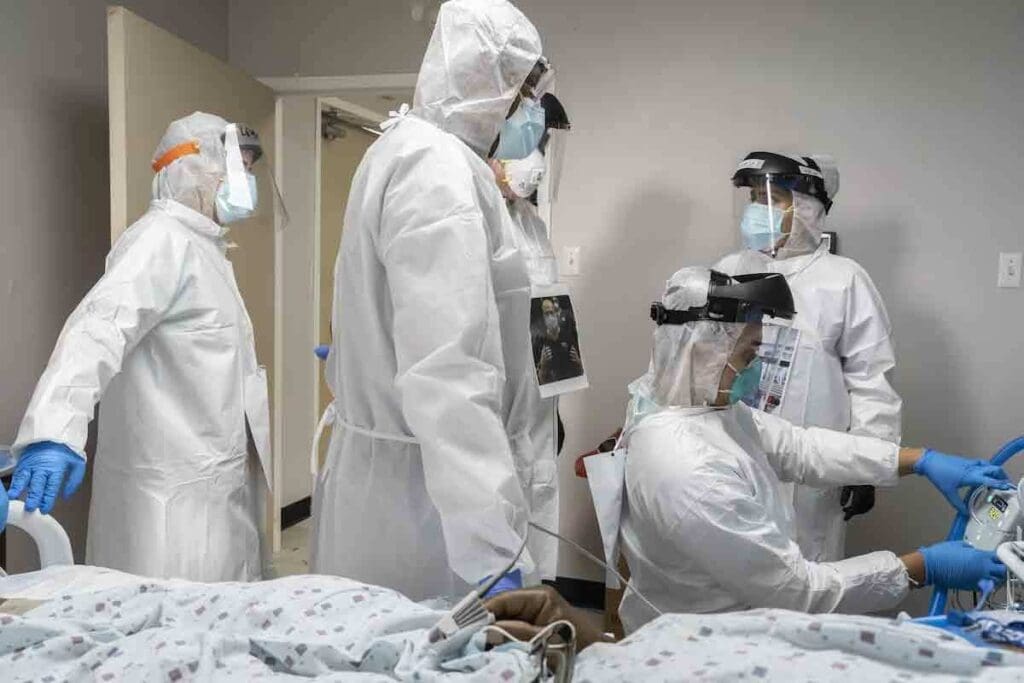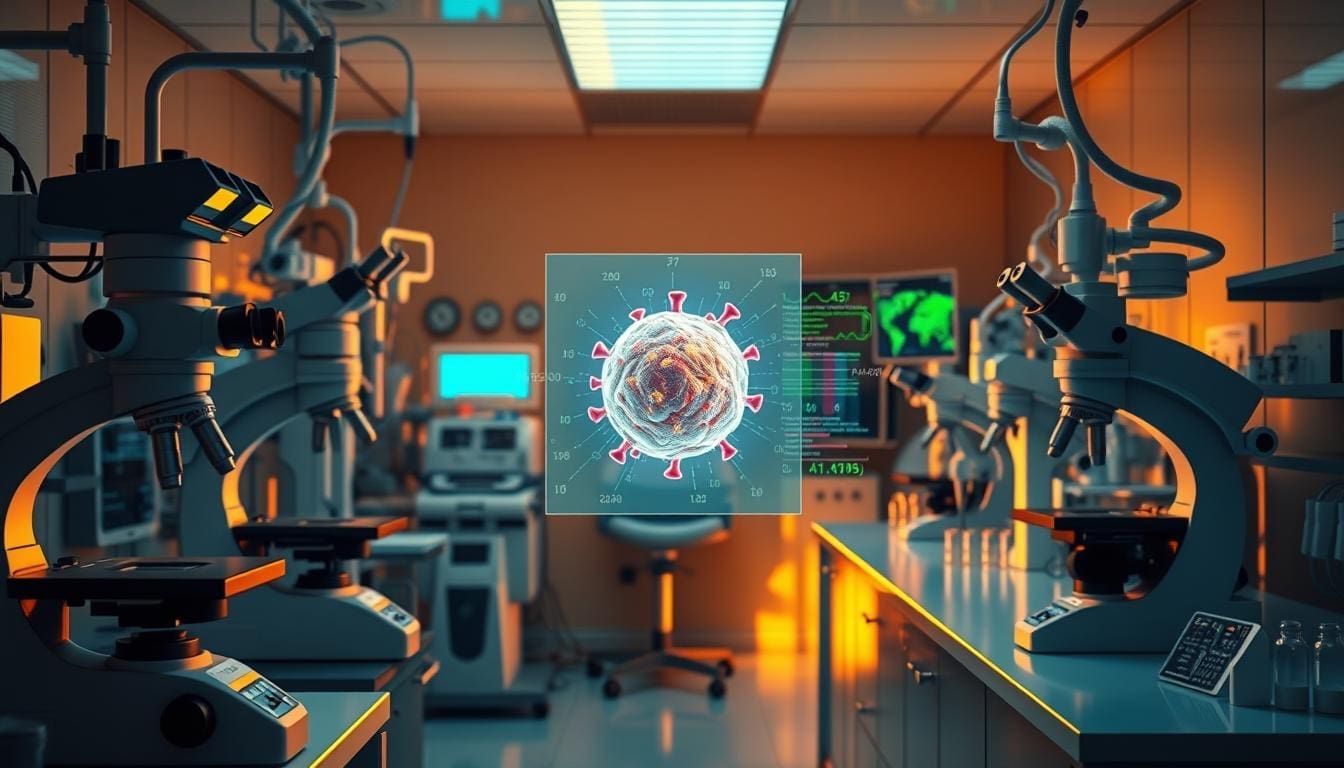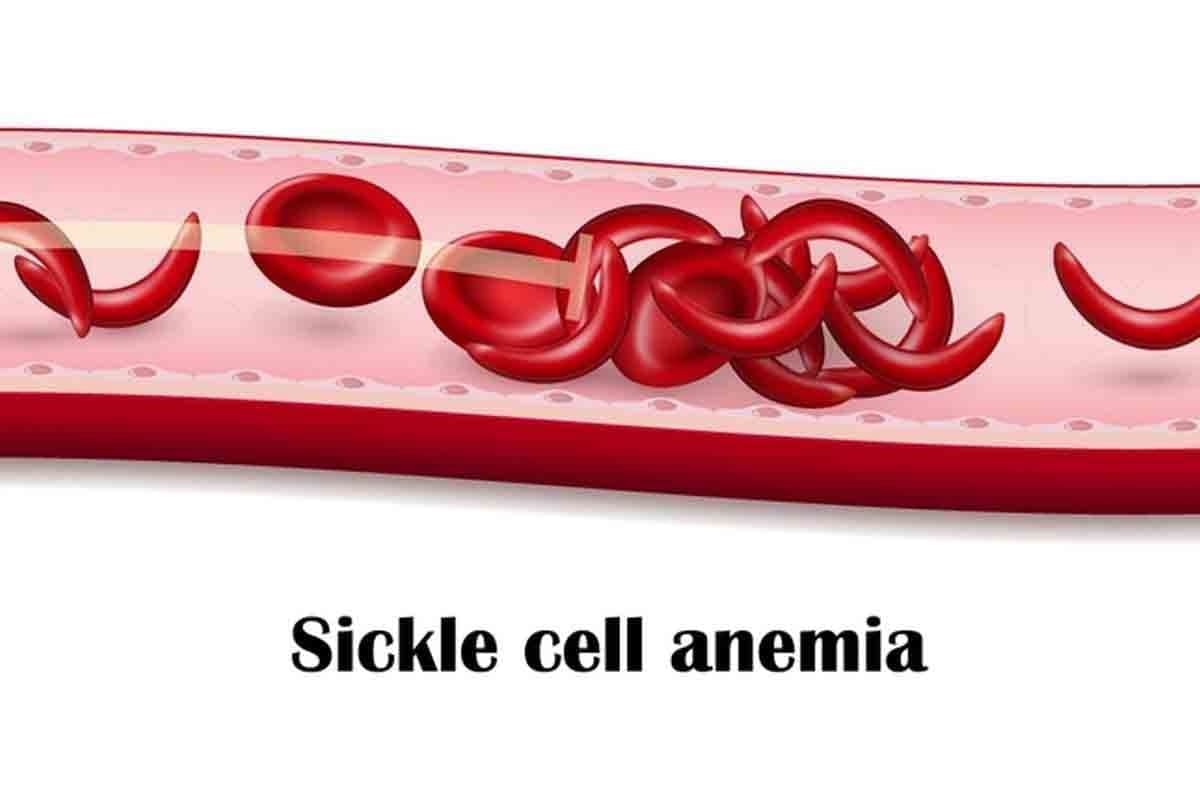Last Updated on November 27, 2025 by Bilal Hasdemir

At Liv Hospital, we know that radiation treatment for thyroid cancer can be tough. Radioactive iodine therapy is good at treating thyroid cancer. But, it’s important to know about the side effects that might happen.Learn 7 common radiation therapy for thyroid side effects and how to manage them during cancer treatment recovery.
About 88 percent of patients who have thyroidectomy get better with radioactive iodine (RAI) therapy. It’s key to know about the common side effects. We’ll talk about temporary hoarseness, trouble swallowing, and feeling tired. We’ll also share tips on how to deal with these issues.
Knowing about the side effects of radiotherapy treatment for thyroid helps patients get ready. At Liv Hospital, we focus on quality care and new treatments. We aim to support patients every step of the way.
Key Takeaways
- Radioactive iodine therapy is effective in nearly 88 percent of patients following thyroidectomy.
- Common side effects of radiation therapy for thyroid cancer include temporary hoarseness, dysphagia, and fatigue.
- Understanding the possible side effects helps patients make better choices about their care.
- Liv Hospital offers top-notch, patient-focused care and new treatments for thyroid cancer.
- It’s important to manage side effects to improve patient outcomes and quality of life.
Understanding Thyroid Cancer and Radiation Therapy

It’s important for patients to know about thyroid cancer and its treatments. Radiation therapy is a big part of it. Thyroid cancer is not just one disease. It has many types, each needing its own treatment.
Types of Thyroid Cancer
Thyroid cancer includes several types. These are papillary, follicular, medullary, and anaplastic thyroid cancer. Each type has its own features and how it might progress.
| Type of Thyroid Cancer | Description | Prognosis |
| Papillary Thyroid Cancer | Most common type, often slow-growing | Generally good, with high survival rates |
| Follicular Thyroid Cancer | Less common, can be more aggressive | Variable, depending on stage and metastasis |
| Medullary Thyroid Cancer | Originates from parafollicular cells | Prognosis varies based on genetic factors and stage |
| Anaplastic Thyroid Cancer | Rare and aggressive, often diagnosed at an advanced stage | Generally poor, due to rapid progression |
Role of Radiation in Treatment Plans
Radiation therapy is key in treating thyroid cancer. It’s used a lot for cancers that could come back or have spread. Radioactive Iodine (RAI) therapy is often used for these cancers. External Beam Radiation Therapy (EBRT) is used for more serious cases or when there’s a risk of local recurrence.
Types of Radiation Therapy for Thyroid Cancer

Radiation therapy is a key treatment for thyroid cancer. It comes in different forms, each suited for specific types and stages of cancer. We’ll look at Radioactive Iodine (RAI) Therapy, External Beam Radiation Therapy, and Radiofrequency Ablation.
Radioactive Iodine (RAI) Therapy
RAI therapy uses radioactive iodine to kill thyroid cells, including cancer. It’s most effective for cancers that take up iodine. The goal is to get rid of any leftover thyroid tissue and cancer cells in the body. You take RAI therapy orally, as a capsule or liquid.
Important things about RAI therapy are:
- It’s mainly for papillary or follicular thyroid cancer patients.
- It works because the thyroid gland naturally absorbs iodine.
- Side effects can include salivary gland damage and temporary neck swelling.
External Beam Radiation Therapy
External Beam Radiation Therapy (EBRT) uses beams to target cancer cells. It’s used for aggressive or advanced cancers that don’t respond to RAI. EBRT is precise, aiming to protect healthy tissues.
Important aspects of EBRT are:
- It’s for cancers not helped by RAI or aggressive types.
- Treatment lasts several weeks, with daily sessions Monday to Friday.
- Side effects can include fatigue, skin irritation, and difficulty swallowing.
Radiofrequency Ablation
Radiofrequency Ablation (RFA) is used for small tumors or recurrent disease. It uses heat from electrical energy to kill cancer cells. RFA is for patients not suited for surgery or with recurrent disease.
Things to consider about RFA are:
- It’s minimally invasive, guided by ultrasound.
- RFA is an option for neck cancer recurrence.
- Potential side effects include pain at the site of the procedure and temporary voice changes.
Effectiveness of Radiation Therapy for Thyroid Cancer
Radiation therapy is a key treatment for thyroid cancer. It uses radioactive iodine (RAI) to help patients. This method has been shown to improve patient outcomes.
Research shows RAI therapy lowers cancer recurrence rates. The success depends on cancer type, stage, radiation dose, and patient health.
Success Rates and Statistics
Many studies prove RAI therapy’s effectiveness. For example, a Journal of Clinical Endocrinology and Metabolism study found it reduces recurrence in differentiated thyroid cancer patients.
| Treatment Outcome | RAI Therapy (%) | No RAI Therapy (%) |
| Recurrence Rate | 5% | 15% |
| Survival Rate | 95% | 85% |
Recent Research on Low-Dose vs. High-Dose RAI
Recent studies compare low-dose and high-dose RAI therapy. A Journal of Nuclear Medicine study found low-dose RAI works as well as high-dose for low-risk thyroid cancer.
Key findings include:
- Low-dose RAI causes fewer side effects than high-dose.
- Recurrence rates are similar in both groups.
Factors Affecting Treatment Outcomes
Several factors affect radiation therapy’s success. These include cancer stage and type, patient age, and any health conditions.
Understanding these factors is key for personalized treatment plans. This approach maximizes benefits and minimizes side effects.
Healthcare providers can tailor treatments better. This leads to more effective care for thyroid cancer patients.
Preparing for Radiation Therapy
Getting ready for radiation therapy involves several steps. We’re here to help you understand what you need to do. This will make your thyroid cancer treatment smoother.
Pre-Treatment Consultations
First, you’ll have talks with your healthcare team before treatment starts. They will explain your treatment plan and possible side effects. This is a great chance to learn about the process and what to expect. Make sure to ask about any special diet or medication changes you need to make.
Dietary and Medication Adjustments
For Radioactive Iodine (RAI) therapy, you’ll need to eat a low-iodine diet before treatment. Some medicines might also need to be changed or stopped. It’s important to follow your doctor’s advice on medication changes. Your team will give you specific guidance on diet and medication.
What to Bring to Treatment Sessions
On treatment day, bring important documents and a list of your medicines. Wear comfortable clothes because you might sit or lie in a certain way. Your team will tell you what else to bring.
Being well-prepared can make your radiation therapy go smoothly. If you have any worries or questions, talk to your healthcare team. They’re there to help and support you.
Radiation Therapy for Thyroid Side Effects: What to Expect
When you get radiation therapy for thyroid cancer, knowing the side effects is key. We’ll talk about the common side effects and what you might experience.
Radiation therapy, like radioactive iodine therapy, can affect the thyroid gland and nearby tissues. This can lead to fatigue, dry mouth, and changes in taste.
Short-term vs. Long-term Side Effects
Side effects fall into two groups: short-term and long-term. Short-term effects happen during or right after treatment. These can include feeling tired, nausea, and swollen salivary glands. Long-term effects might show up months or years later. These can be dry mouth and changes in how things taste.
“The side effects of radiation therapy can be tough, but knowing what to expect helps patients handle treatment better,” says a top oncologist.
Risk Factors for Developing Side Effects
Several things can affect how likely you are to get side effects from radiation therapy. These include the dose and type of radiation, where it’s aimed, and your age and health. For example, higher doses of radioactive iodine therapy can raise the risk of some side effects.
- The dose and type of radiation used
- The specific area of the body treated
- Individual patient factors, such as age and overall health
Timeline of Side Effect Onset
When side effects start can vary. Some, like feeling tired and nauseous, might happen during or right after treatment. Others, like dry mouth and taste changes, might take longer to show up or get worse after treatment ends.
Knowing about side effects and when they might start helps patients get ready for treatment. It also lets them work closely with their healthcare team to deal with any problems that come up.
Side Effect #1: Temporary Hoarseness
Radiation therapy for thyroid cancer can change a patient’s voice temporarily. This side effect, known as temporary hoarseness, happens because of the radiation’s effect on the thyroid gland and nearby tissues.
Causes and Mechanisms
Temporary hoarseness happens when the laryngeal structures get exposed to radiation during thyroid cancer treatment. The radioactive iodine (RAI) therapy used in some cases can cause inflammation and irritation to the vocal cords. This leads to changes in voice quality. Knowing the causes helps in managing this side effect effectively.
“The voice is a critical aspect of a person’s identity, and any changes can be distressing,” says an expert in thyroid cancer treatment. “But, in most cases, temporary hoarseness goes away on its own with the right care.”
Duration and Management
The time it takes for temporary hoarseness to go away varies. It usually goes away a few weeks after finishing radiation therapy. To manage it, patients can try voice rest, stay hydrated, and avoid loud talking or singing. Sometimes, speech therapy is recommended to help patients get their voice back to normal.
- Stay hydrated to keep your vocal cords lubricated.
- Avoid loud noises and refrain from shouting.
- Practice gentle vocal warm-ups as advised by a speech therapist.
Voice Rest Techniques
Voice rest is key in managing temporary hoarseness. It means doing less talking and avoiding whispering, which can strain the voice more. Patients should follow voice rest techniques given by healthcare professionals to help in recovery.
By knowing the causes and using good management strategies, patients can lessen the effect of temporary hoarseness on their daily lives. It’s important to listen to healthcare providers for the best results.
Side Effect #2: Dysphagia (Difficulty Swallowing)
Radiation therapy for thyroid cancer can cause dysphagia. This makes eating and swallowing hard. We’ll look at how it affects daily life and how to manage it.
Impact on Daily Life
Dysphagia can really change a patient’s life. It makes eating and drinking hard. This can lead to not getting enough nutrients and losing weight. We focus on treating dysphagia to help patients get the nutrients they need.
Treatment Options
There are many ways to deal with dysphagia. These include swallowing therapy, changing what you eat, and sometimes medicine. We help find the best treatment for each patient.
Dietary Modifications
Changing your diet is key in managing dysphagia. Patients should eat soft foods and avoid dry or sticky ones. We guide on the best diet changes to help symptoms.
| Food Type | Recommended | To Avoid |
| Solids | Soft foods like mashed potatoes, yogurt, and cooked vegetables | Dry or sticky foods such as crackers or peanut butter |
| Liquids | Thickened liquids using commercial thickening agents | Thin liquids like water or clear broths |
Side Effect #3: Neck Tenderness and Swelling
Patients with thyroid cancer often feel neck tenderness and swelling during radiation therapy. This happens because the radiation causes inflammation. This inflammation can make the neck area feel sore and swollen.
Managing Discomfort
It’s important to manage neck tenderness and swelling to stay comfortable during treatment. Using a cold compress can help reduce swelling and ease pain. Also, taking over-the-counter pain relievers, as suggested by a doctor, can help with discomfort.
When to Seek Medical Attention
While neck tenderness and swelling usually go away on their own, sometimes you need to see a doctor. If swelling is severe or if you have trouble breathing, swallowing, or have a high fever, get help right away. Also, if symptoms don’t get better or get worse, call your doctor.
Effective Pain Relief Methods
There are ways to effectively manage neck tenderness and swelling. Cold compresses and pain relievers are good starts. Gentle neck exercises, as advised by a healthcare professional, can also help. Plus, keeping good posture and resting often can help reduce pain.
| Method | Description | Benefits |
| Cold Compress | Applying a cold compress to the neck area | Reduces swelling, eases tenderness |
| Pain Relievers | Over-the-counter pain relievers as advised by a healthcare provider | Manages pain and discomfort |
| Gentle Neck Exercises | Gentle exercises to improve neck mobility | Improves mobility, reduces stiffness |
Side Effect #4: Dry Mouth (Xerostomia)
One of the major side effects of radiation therapy for thyroid cancer is dry mouth, or xerostomia. This happens when radiation hits the salivary glands, making less saliva.
Salivary Gland Impact
The salivary glands are key for oral health. They make saliva that aids digestion and fights off infections. When radiation hits these glands, it can cut down saliva production, causing mouth dryness and discomfort.
Radiation therapy, when aimed near the thyroid gland, can harm the salivary glands. This leads to xerostomia. The dryness level can change based on the radiation dose and how long it lasts.
Strategies for Relief
Dealing with dry mouth needs a mix of self-care and professional advice. Here are some ways to help:
- Stay Hydrated: Drinking lots of water keeps the mouth moist and comfy.
- Saliva Substitutes: Using saliva substitutes can give quick relief from dry mouth.
- Oral Hygiene: Keeping good oral hygiene is key. Brushing, flossing, and fluoride treatments help avoid dental issues.
- Avoid Irritants: Steer clear of caffeine, tobacco, and spicy or salty foods to lessen discomfort.
- Stimulate Saliva Production: Chewing sugar-free gum or sucking on sugar-free candies can help make more saliva.
Long-term Management
For some, dry mouth can last a long time or even forever after radiation therapy. It’s important to keep managing it to avoid tooth decay and oral infections.
Regular dental visits and custom oral care plans are key to managing xerostomia well. Also, new radiation therapy methods are being developed to lessen the impact on salivary glands and reduce dry mouth risk.
Understanding the causes and using effective management strategies can help patients deal with dry mouth. This way, they can keep their mouth healthy during and after thyroid cancer radiation therapy.
Side Effect #5: Altered Taste Sensation
Radioactive iodine therapy is a common treatment for thyroid cancer. It can change how food tastes. This happens because the radiation damages the taste buds on the tongue.
Mechanisms Behind Taste Changes
The change in taste is mainly because of the radiation harming the salivary glands and taste buds. Salivary gland dysfunction can make less saliva, which is key for tasting food. Also, the taste buds’ ability to heal and sense flavors can be affected.
Recovery Timeline
How quickly taste returns can vary. Some people get back to normal taste in a few months. Others might take longer. The dose of radioactive iodine and how well someone tolerates radiation play big roles.
A study found that most patients got back to normal taste within 6 to 12 months after treatment.
Culinary Adaptations
To deal with changed taste, patients can try different things. Here are a few ideas:
- Using herbs and spices to make food taste better
- Eating foods that make more saliva, like citrus fruits or sour candies
- Staying away from foods that are too salty, sweet, or bitter
| Culinary Adaptation | Benefit |
| Using citrus fruits | Stimulates saliva production, making food taste better |
| Avoiding overly salty foods | Helps sensitive taste buds feel less discomfort |
| Incorporating herbs and spices | Makes food taste good without salt or sugar |
By making these changes, patients can handle the side effect of changed taste better. They can also keep getting enough nutrients during their treatment.
Side Effect #6: Nausea and Digestive Issues
Nausea and digestive problems are common in patients with thyroid cancer getting radiation therapy. It’s important to manage these symptoms to keep patients comfortable and well-nourished during treatment.
Preventive Medications
To fight nausea, we give antiemetic medicines. These can be taken by mouth or through an IV, based on how bad the nausea is.
The type of antiemetic we choose depends on the patient’s health history and the radiation therapy plan.
| Medication Type | Administration Route | Common Use |
| Ondansetron | Oral/IV | Prevention of nausea and vomiting |
| Metoclopramide | Oral/IV | Nausea and vomiting, gastroparesis |
Dietary Adjustments
Eating small, frequent meals helps manage nausea and digestive issues. We suggest avoiding spicy, fatty, or heavy foods to reduce discomfort. Staying hydrated is also key.
Hydration Importance
Drinking enough water is vital for patients getting radiation therapy. We tell them to drink lots of fluids like water, clear broths, or electrolyte-rich drinks.
Checking urine output and color helps see if they’re drinking enough. Dark urine means they might not be drinking enough.
Side Effect #7: Fatigue and Energy Depletion
One common side effect of radiation treatment for thyroid cancer is fatigue. This makes daily life hard. It’s important to find ways to manage fatigue during treatment.
Causes of Radiation-Related Fatigue
Radiation therapy can make you tired for many reasons. These include how your body reacts to the treatment and the effort to fix damaged cells. Anemia, or low red blood cells, also adds to feeling tired. Knowing why you’re tired helps in finding ways to feel better.
Energy Conservation Strategies
It’s key to save energy when you’re tired. You can do this by pacing yourself, focusing on important tasks, and resting often. Keeping a routine that balances rest and activity is also helpful. Here are some tips:
- Prioritize tasks based on importance and urgency
- Take short breaks throughout the day
- Delegate tasks when possible
- Use energy-saving devices or tools
Exercise and Rest Balance
Even though it might seem odd, gentle exercise can help fight fatigue. Short walks or yoga can boost your energy. But, don’t forget to rest enough. Finding the right balance between exercise and rest is essential. Talk to your doctor to create a plan that works for you.
Conclusion: Managing Your Recovery Journey
Managing your recovery after radiation therapy for thyroid cancer is key. This treatment, including radioactive iodine and external beam radiation, can cause side effects. But, with the right care and guidance, you can handle these challenges well.
Recovering from radiation therapy means dealing with side effects like hoarseness, swallowing trouble, and tiredness. We’ve talked about ways to lessen these, like changing your diet and saving energy. Knowing about these side effects and taking steps to manage them can make your recovery better.
It’s also vital to keep up with follow-up care with your doctor. This helps track your progress and solve any issues. Working with your medical team and making smart lifestyle choices can help you recover well after radiation therapy for thyroid cancer.
Being aware of the side effects of radiation therapy for thyroid cancer and managing them can make your recovery journey easier. You can face it with confidence and strength.
FAQ
What is radiation therapy for thyroid cancer?
Radiation therapy uses high-energy particles or waves to kill cancer cells. It’s used for thyroid cancer to destroy any remaining cells after surgery. It also treats cancer that has spread to other parts of the body.
What are the types of radiation therapy used for thyroid cancer?
There are two main types for thyroid cancer. Radioactive Iodine (RAI) therapy involves taking a radioactive iodine pill. This pill is absorbed by the thyroid gland and nearby tissues.
External Beam Radiation Therapy (EBRT) directs beams from outside the body to the cancer site.
What are the common side effects of radiation therapy for thyroid cancer?
Side effects include temporary hoarseness and difficulty swallowing. You might also feel neck tenderness and swelling. Dry mouth, altered taste, nausea, and digestive issues are common too.These can be managed with dietary changes, voice rest, and conserving energy.
How can I manage dry mouth caused by radiation therapy?
Use saliva substitutes and practice good oral hygiene. Stay hydrated and avoid sugary or acidic foods and drinks. This can help with dry mouth symptoms.
Can radiation therapy cause long-term side effects?
Yes, it can lead to long-term side effects like dry mouth and altered taste. Fatigue is also common. But, many of these can be managed with proper care and support.
How can I prepare for radiation therapy?
Attend pre-treatment consultations and make dietary and medication adjustments as advised. Understand what to bring to treatment sessions. This preparation is key.
What is the effectiveness of RAI therapy for differentiated thyroid cancer?
RAI therapy is very effective for differentiated thyroid cancer. Success rates depend on the cancer stage, type, and dose of radioactive iodine. Individual patient characteristics also play a role.
Can I undergo RAI therapy if I have advanced thyroid cancer?
RAI therapy is mainly for differentiated thyroid cancers. For more aggressive cancers, External Beam Radiation Therapy might be recommended. Your healthcare team will decide the best treatment for you.
How can I manage fatigue caused by radiation therapy?
Use energy conservation strategies like pacing activities and balancing rest and exercise. Prioritize tasks and stay hydrated. A balanced diet can also help fight fatigue.
What are the benefits of Radiofrequency Ablation for thyroid cancer?
Radiofrequency Ablation is a minimally invasive procedure. It uses heat to destroy cancer cells. It’s used for thyroid nodules and certain cancers.
How can I manage nausea and digestive issues during radiation therapy?
Use preventive medications and make dietary adjustments. Eat small, frequent meals and stay hydrated. Avoiding strong-smelling foods and drinks can also help with nausea.
References
- Li, Y., Yang, T., Ju, L., Feng, Y., Chen, Z., Xiang, X., Zhu, T., Pang, H., & Wang, Z. (2024). Quality of life and decision regret in patients with late-hypothyroidism after radioiodine treatment for Graves’ disease. Clinical Endocrinology (Oxford), 100(1), 87–95. https://onlinelibrary.wiley.com/doi/abs/10.1111/cen.14986
- Shim, S. R., Zaydfudim, V., Sosa, J. A., & et al. (2021). Cancer risk after radioactive iodine treatment for hyperthyroidism: a systematic review and meta-analysis. Journal of Endocrinological Investigation / PMC. https://www.ncbi.nlm.nih.gov/pmc/articles/PMC8449277/






